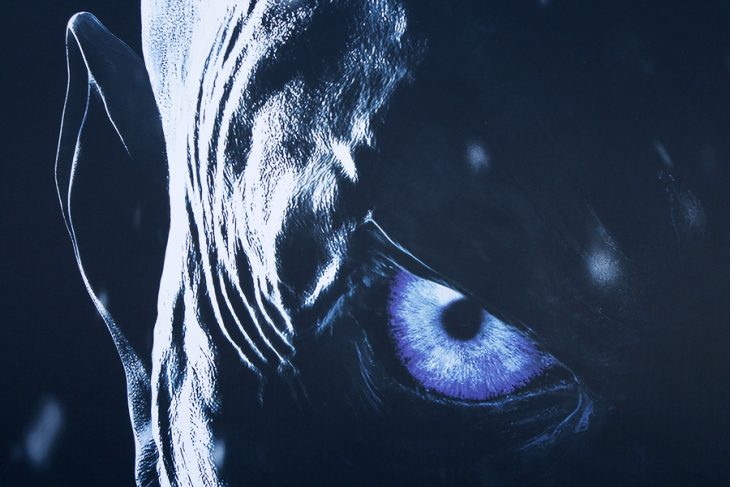
BANFF – I know HitTV is a youth oriented television network in Kazakhstan, and that in Anglo-Canada, "hit TV" – as reflected in the ratings – is pretty much something else that comes from away.
Not (yet) near-Asia, but certainly from the U.S.A.
With incredible exceptions such as Vikings and the Stanley Cup Playoffs, rarely does an English-language Canadian TV show make the weekly top 10 in ratings.
Moreover, even through the 1950s, when the CBC had a virtual monopoly on our market, two-thirds of the primetime viewership was generated by American fare like Ed Sullivan, I Love Lucy and Father Knows Best.
So it was with much anticipation that the 2018 Banff World Media Fest workshop on "Hit TV" brought together some of the best minds in television for a live dissection of the elusive elements that help make a TV series culture-defining, game-changing, and globe shaking.
Lynette Rice (editor at large at Entertainment Weekly) moderated the panel; and participants included this year's Rockie honourees Jeremy Podeswa (director, Rebel Films), Sheila Hockin (executive producer, The Fifth Business), and David Shore (creator and executive producer, ShoreZ Productions).
Out of the gate, Shore (who is from London, Ontario) confessed that "there are lots of good shows that don't work, and bad shows that do" and when he thought about "perfect shows… Breaking Bad comes to mind.. and maybe Rick and Morty (the animated adult series), and the comedy Silicon Valley."
I thought his own brilliant, Emmy-winning series House with that misanthropic and contentious Dr. Gregory House (played by Hugh Laurie), and huge dose of twisted humour, would have been a great candidate too.
For Shore, marketing is what’s vital to creating a hit. Indeed, "the only difference between the Houdini and Doyle series (as a U.S.-Canada-UK co-venture) was that in the U.S. Fox didn't promote it… and ended up cancelling it… but in Canada it got promotion from Global and it was a big hit,” he said.
"Concept execution and timing are key… and it starts with a show-runner that has a vision and can put together a team." – Jeremy Podeswa
Podeswa, another Canadian Emmy-winner, who worked on such huge hits as Game Of Thrones emphasized "concept execution and timing are key… and it starts with a show-runner that has a vision and can put together a team… (getting the best) cast and writers.”
Timing seems to be increasingly key, too, as “The Handmaid's Tale just hit the zeitgeist… with the #MeToo movement and of course Trump,” he added.
Hockin reinforced the timing factor by noting "Penny Dreadful was a brilliant exploration of classic literary types… their origins… like Dorian Grey… but it never got a decent audience.”
During 2017-18, she also worked on 23 episodes of The Handmaid's Tale as co-executive producer; and earlier on such hit series as Vikings (2013) and The Tudors (2007)..
For Shore, however, planning for such lucky timing is "a fool's game trying to figure out what's the zeitgeist… (especially) what's the timing and the show that we make for that… it's really starting in the wrong spot".
Rather than parry his doubts on timing, Hockin agreed with him on the marketing aspect. Indeed, she said "promotion needs to be a priority for the broadcaster… and marketing needs to secure a solid initial audience.
“It used to be that we worked on one series at a time… now there's enough work I'm working on three at the moment… there's lots more work out there… more international".
Interestingly, Shore and Podeswa spent the remaining panel time exploring whether hit shows require likeable characters – and apparently, not necessarily.
"Dr. House is not likeable… but there's something redemptive about him… and about his traits that an audience gets,” Shore explained.
So while most of us had more notes from network executive producers about likeable and redeeming lead characters than on any other creative aspect, "Fox never wanted to water down Dr. House… Hugh Laurie reading for the part was the only time I've been in an audition where I wanted to stand up and applaud.”
Podeswa contributed in the same vein with "Dexter (which he once directed) has depth and complexity of character… and the great writing makes sure he's not one dimensional. (However), for Game Of Thrones, it's the actors who, despite being sometimes evil, bring humanity to the characters and elevate the roles.
The consensus emerged on the panel that likeable = simplicity = boring, and that audiences wanted fresh, edgy, new, and compelling content.
So sure, we’ll continue to see television shows about families – likely forever – but from wildly different perspectives and in constantly innovating forms. Plus, while divining a TV hit is still an imperfect science, a guarantee for failure exists when the network, producer, director, and/or key actors hold divergent visions of the show.
Interestingly, the panel's consensual view included that while the primary directive is to entertain, you're definitely wasting something if you're not also saying something with a hit.
To conclude, nostalgia may be a temptress for the old days when titles like M*A*S*H, Seinfeld or Cheers were unquestioned hits; but in today's televisual, digital world of multiple platforms, a plethora of morphing business models, and accelerating cord-cutting, what may be considered a hit for Netflix may be a dud for CTV.
Meanwhile back at HitTV in Kazakhstan, a recent top rated show featured 20 music video ringtone downloads.
So let's get real, despite the uncertainties, complexities, and challenges of our TV-surround, I really prefer our chances!



